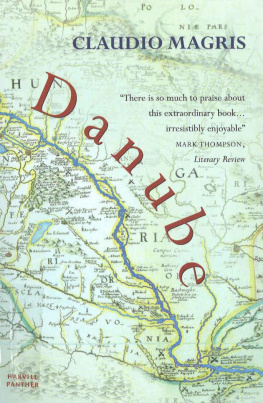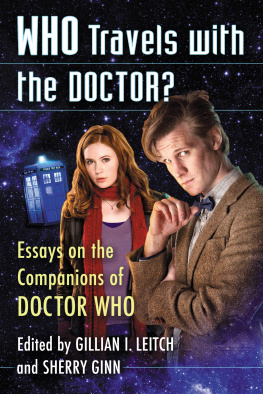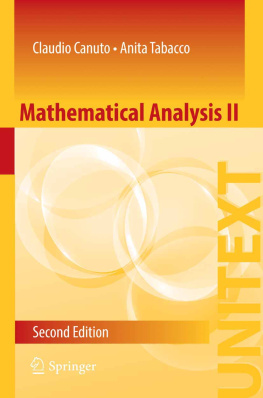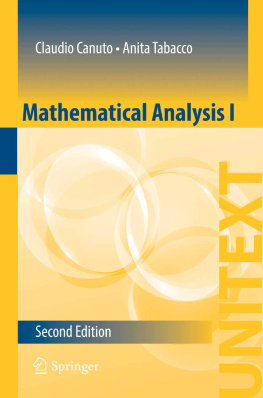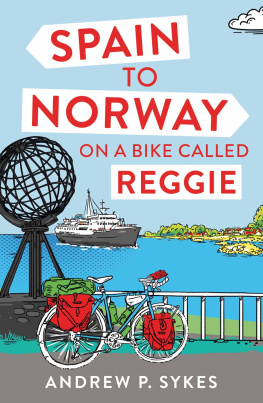Journeying
BOOKS BY CLAUDIO MAGRIS
IN ENGLISH TRANSLATION
Journeying
Blameless
Blindly
Danube
A Different Sea
Inferences from a Sabre
Microcosms
Voices
Journeying
Linfinito viaggiare
CLAUDIO MAGRIS
TRANSLATED FROM THE ITALIAN
BY ANNE MILANO APPEL

The Margellos World Republic of Letters is dedicated to making literary works from around the globe available in English through translation. It brings to the English-speaking world the work of leading poets, novelists, essayists, philosophers, and playwrights from Europe, Latin America, Africa, Asia, and the Middle East to stimulate international discourse and creative exchange.
English translation copyright 2018 by Anne Milano Appel.
Originally published as Linfinito viaggiare. 2005 Arnoldo Mondadori
Editore S.p.A., Milano.
All rights reserved.
This book may not be reproduced, in whole or in part, including illustrations, in any form (beyond that copying permitted by Sections 107 and 108 of the U.S. Copyright Law and except by reviewers for the public press), without written permission from the publishers.
Yale University Press books may be purchased in quantity for educational, business, or promotional use. For information, please e-mail (U.K. office).
Set in Electra and Nobel types by Tseng Information Systems.
Printed in the United States of America.
Library of Congress Control Number: 2017952564
ISBN 978-0-300-21851-0 (hardcover : alk. paper)
A catalogue record for this book is available from the British Library.
This paper meets the requirements of ISBN/ISBN ISBN39.48-1992 (Permanence of Paper).
10 9 8 7 6 5 4 3 2 1
To Marisa and the companions of my journey whom I have loved, and who have already arrived
CONTENTS
JOURNEYING
PREFACE
1. Prefaces are always dubious; useless if the book they are introducing doesnt require one, or a sign of the books inadequacy if it does need one, they are also likely to spoil the readingsomewhat like explaining a joke or revealing the punchline. Even so, a prologue is perhaps appropriate to a collection of travel writings, since travelin the world and on the pageis in itself a continuous preamble, a prelude to something that is always still to come and always just around the corner: the departure, the stops, the return, packing and unpacking the suitcases, recording in a notebook the landscape which takes flight as you move through it, which disintegrates and is then recomposed like a film sequence with its fade-ins and fade-outsor like a face that changes over time.
A preface is kind of a suitcase, a kitbag, and its part of the journey: at the start, when you put in the few predictably indispensable things, always forgetting something essential; along the way, as you collect whatever you want to bring home; upon your return, when you open the bag and cant find the things that had seemed most important, while objects you dont even remember putting in jump out at you. The same thing happens with writing: something that seemed fundamental as you were going through it and experiencing it has vanished, its no longer there on paper, whereas something that you had barely noticed in lifeduring the journey of lifeassumes a commanding form and stands out as essential.
The journey always starts over again, it always has to start over again, like life, and every annotation is a prologue; if the passage through the world is transformed into writing, it is prolonged as it moves from reality to papermaking notes, revising them, partially deleting them, rewriting them, shifting them around, varying their arrangement. A montage of words and images, captured from a train window or when walking down a street and turning the corner. Only with death, Karl Rahner, the great theologian on the path to spiritual evolution, reminds us, does our status viatoris, our existential condition as a traveler, cease. Travel therefore has to do with death, as Charles Baudelaire or Carlo Emilio Gadda well knew, but it is also a deferral of death: a way of putting off the arrival, the encounter with the essential, as long as possible, just as a preface postpones the actual reading, the moment of the final assessment and verdict. Traveling not to arrive but for the sake of traveling, to arrive as late as possible, possibly never to arrive.
2. The journey therefore as persuasion. Perhaps it is primarily in my travels that I came to know persuasion, in the sense given to this word by Carlo Michelstaedter: the quest for that self-sufficient life, free and fulfilled, which Enrico, the protagonist in my novel Un altro mare (A Different Sea), pursues with self-destructive, futile tenacity. Persuasion: the possession of ones life here and now, the ability to experience the moment, every moment, not just the privileged, exceptional ones, without sacrificing it to the future, without annihilating it in projects and plans, without considering it simply a moment to pass over quickly in order to move on to something else. Almost always in life there are too many reasons to hope for time to pass as quickly as possible, for the present to promptly become the future, for tomorrow to come soon, because we are eagerly awaiting the doctors response, the start of a vacation, the completion of a book, the result of some action or initiative, and so we live not to live but to have already lived, to move closer to death, to die.
Pressing, hectic travel, more and more frantically imposed by work necessarily transformed into a spectacleespecially on the intellectual, that manager of himself and of the Spirit, an exaggerated caricature of the corporate manageris the negation of persuasion, of pausing, of wandering; rather it more closely resembles the premature ejaculation that Joseph Roth, repeating a rumor about Napoleon in his novel The Hundred Days, attributes to the empereur, who doesnt so much want to make love as to have already done it, hastily getting it over with. A lecturers travels, between one airport or hotel and another, is not dissimilar to this beleaguered orgasm.
But when I journeyed through the countless towns of the Danube or its surrounding microcosms, setting out in a certain direction, always open to impulsive digressions, stops, and detours, I lived persuaded, as at sea; I lived immersed in the present, in that suspension of time that occurs when you abandon yourself to its gentle current and to whatever life bringslike an open bottle under water, filled with the flow of things, Goethe said, traveling in Italy. and Trieste who crossed the oceans mockingly called those who only traveled short distances between Trieste and Istria or between Fiume and the nearby islands of the Quarnero capitan de cadin, captain of the washbowl, though even in that gulf the bora causes storms that lead to shipwreck.
In the chapters of this book we will go to the antipodes, as well as to the microcosms of Bisiach or the nanocosms of Ciceria, and the travelers tempo hopes to resemble the pace of Laurence Sterne. Traveling while at the same time constantly feeling both unfamiliar and at home, though aware of not having a home, of not owning one. The traveler is always a vagabond, a foreigner, a guest; he sleeps in rooms that will lodge strangers before and after him, he does not own the pillow on which he rests his head or the roof that shelters him. And so he understands that you can never really own a house, a niche carved out in the infinite universe, but merely stop there for a night or for a lifetime, respectfully and gratefully. There is good reason why a journey is primarily a return and teaches us to dwell more unreservedly, more poetically in our own home. Man dwells on this earth poetically, a verse by Hlderlin reads, but only if he knows, as he says in another poem, that the potential for salvation lies where there is danger.
Next page

